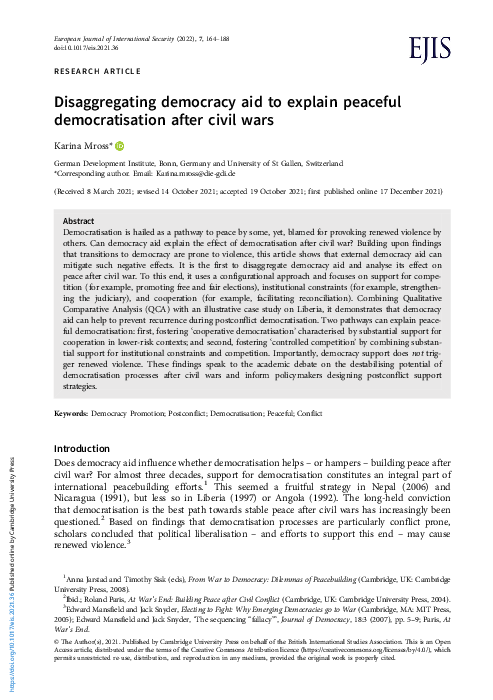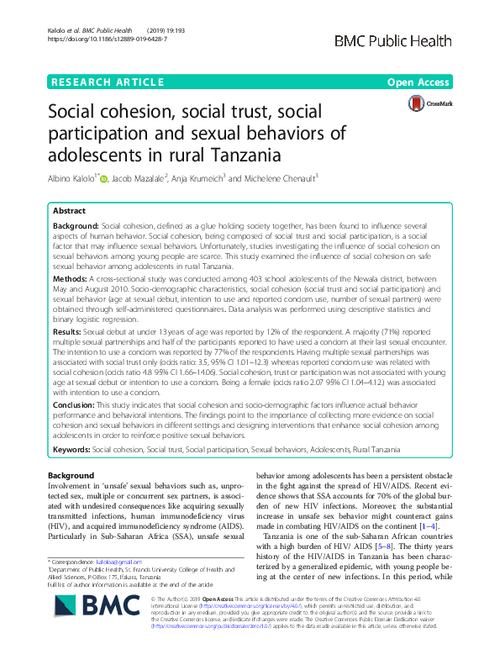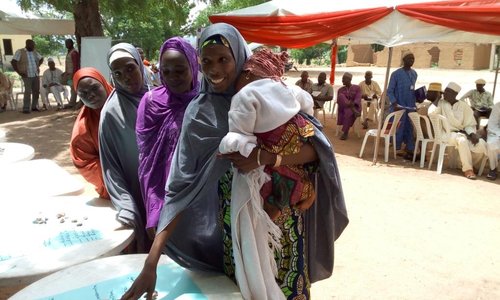Disaggregating democracy aid to explain peaceful democratisation after civil wars
Key facts
Participation
Cooperation
Social protection
Political institutions & governance
Development cooperation
Summary
Democratisation is hailed as a pathway to peace by some, yet, blamed for provoking renewed violence by others. Can democracy aid explain the effect of democratisation after civil war? Building upon findings that transitions to democracy are prone to violence, this article shows that external democracy aid can mitigate such negative effects. It is the first to disaggregate democracy aid and analyse its effect on peace after civil war. To this end, it uses a configurational approach and focuses on support for competition (for example, promoting free and fair elections), institutional constraints (for example, strengthening the judiciary), and cooperation (for example, facilitating reconciliation). Combining Qualitative Comparative Analysis (QCA) with an illustrative case study on Liberia, it demonstrates that democracy aid can help to prevent recurrence during postconflict democratisation. Two pathways can explain peaceful democratisation: first, fostering ‘cooperative democratisation’ characterised by substantial support for cooperation in lower-risk contexts; and second, fostering ‘controlled competition’ by combining substantial support for institutional constraints and competition. Importantly, democracy support does not trigger renewed violence. These findings speak to the academic debate on the destabilising potential of democratisation processes after civil wars and inform policymakers designing postconflict support strategies.

Explore the hub further

Research Institute Social Cohesion (RISC) - Forschungsinstitut Gesellschaftlicher Zusammenhalt (FGZ)



